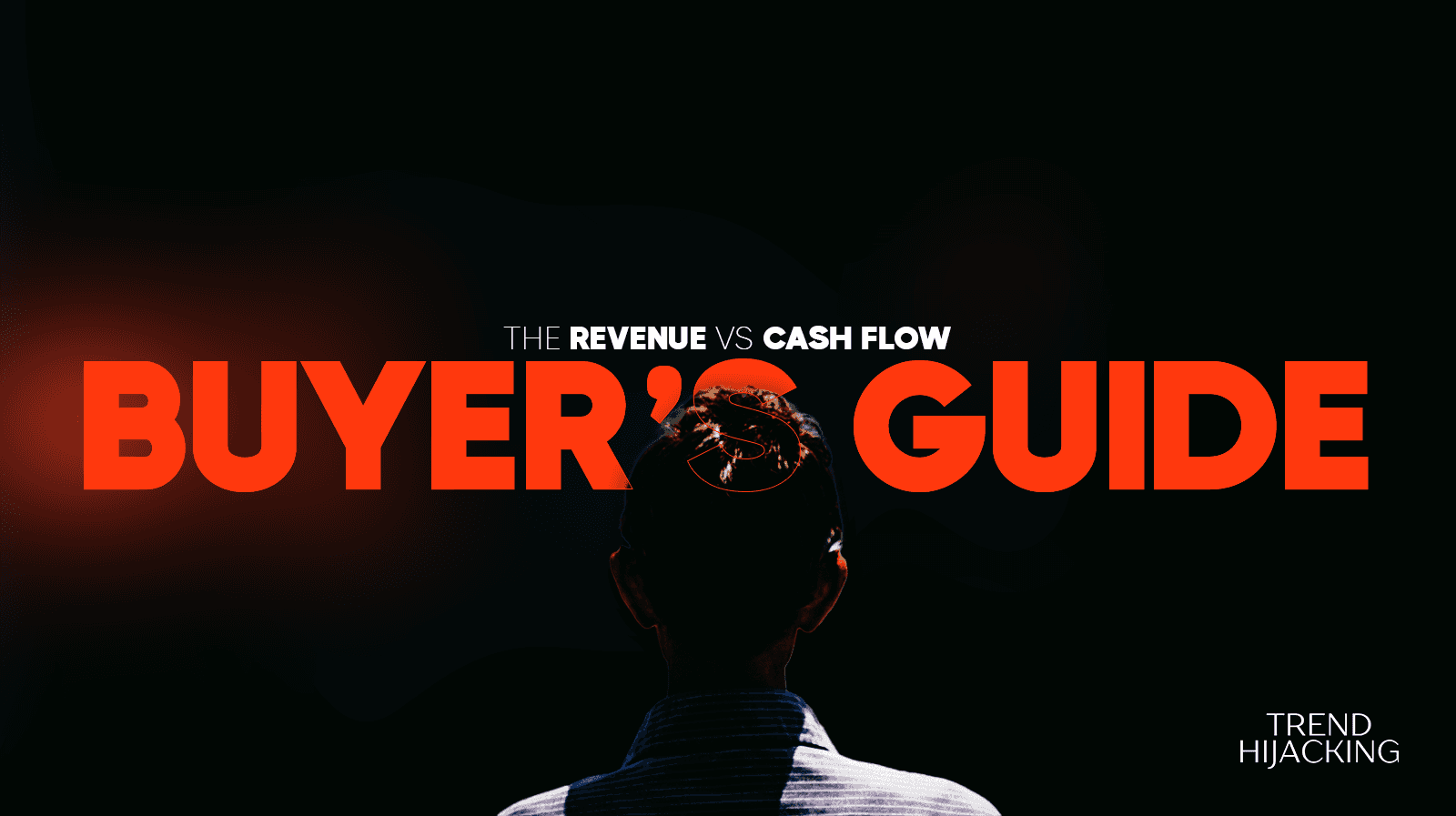10 Questions To Ask A Business Broker Before Buying A Business
1. What’s The Story Behind Why This Business Is Being Sold?

You’ve probably come across guides telling you to ask why the business is being sold. But they don’t tell you what to look for in the answer.
If the broker says, “The owner is retiring,” ask how long they’ve been preparing for retirement.
And if they say, “They’re focusing on another project,” ask what kind of project. Real reasons often show stress, not success.
According to a report from Business News, 40 to 50% of business owners who sold did so due to burnout, family issues, or even declining profits, not retirement.
If the broker gets defensive or vague, that’s your first warning sign!
We Help You Buy / Build, Manage and Scale E-commerce Brands for an EXIT
E-commerce Simplified for Busy Individuals – We handle the buying, building, and scaling, so you can focus on what matters.
Growth-Focused Strategies – From sourcing to marketing, we drive growth and prepare you for a profitable exit.
Expertly Managed Exits – We build a high-value brand designed for a Lucrative exit.
2. What Would You Fix First If You Owned This Business?

This question helps you break their sales script…
Most brokers expect buyers to ask about profits, not problems. A good broker will pause, think, and give a real answer like:
“The cost structure is too heavy on staff,” or “They rely too much on one client.”
That kind of honesty is gold.
It tells you the broker actually understands the business instead of just repeating the seller’s talking points.
If they say “nothing” or dodge the question, they’re not being real with you.
3. Who Really Runs The Business Day To Day?

Many businesses advertised as “owner-operated” are actually powered by one or two key employees who keep everything running.
The owner may make big decisions, but someone else often manages operations, customers, or suppliers.
Ask for names and job titles.
Find out how long those people have been with the company and what motivates them to stay.
Then ask the critical question: What happens if they leave after I buy the business?
If there are no retention plans or contracts in place, you’re buying risk, not stability.
Numbers might look good on paper, but if the people driving those results walk out after the sale, the business can quickly lose its rhythm (and hence its value).
4. What Parts Of The Business Scare Off Other Buyers?

Every listing that’s been sitting for a while has a reason.
The lease may be too short. Revenue may be flat. Maybe there’s one lawsuit pending.
Brokers rarely volunteer this kind of information unless you ask them directly.
A question like this forces honesty. If they say, “Most buyers don’t like the long customer payment cycles,” that’s useful.
It doesn’t mean you shouldn’t buy… it means you know what you’re dealing with and can negotiate better terms.
5. Can I See The Marketing Materials You Used To Sell This Business?

This one sounds odd, but it works.
You’ll see how the broker pitches the deal to others, which shows what they think are the strongest (and weakest) points.
Look for exaggerations like “huge growth potential” without numbers.
Ask, “What’s that potential based on?”
Brokers who can’t back up their marketing with data usually don’t understand the business beyond a surface level.
We Help You Buy / Build, Manage and Scale E-commerce Brands for an EXIT
E-commerce Simplified for Busy Individuals – We handle the buying, building, and scaling, so you can focus on what matters.
Growth-Focused Strategies – From sourcing to marketing, we drive growth and prepare you for a profitable exit.
Expertly Managed Exits – We build a high-value brand designed for a Lucrative exit.
6. What Do You Wish Buyers Understood Better Before They Make An Offer?

This question makes the broker drop their guard. It’s open, non-threatening, and you’ll often get valuable insights.
Maybe they’ll say, “Most buyers underestimate working capital needs,” or “They forget about licensing and transfer delays.”
That’s inside info you won’t find in the listing.
It also gives you a sense of whether the broker is a partner in your process or just chasing commission.
7. If The Seller Can’t Get Their Asking Price, What Will They Do?

Asking this question will help you read how motivated the seller really is.
If the broker says, “They’ll hold out,” you’re dealing with a stubborn seller.
If they say, “They might finance part of the deal or lower the price,” there you have leverage.
In many cases, sellers agree to finance 10–30% of the deal themselves when they trust the buyer, according to Pepperdine University’s 2023 Private Capital Markets Report.
This is something you can only discover if you ask directly.
8. What Kind Of Buyers Have Already Looked At This Deal (And Why Did They Pass)?

This one is powerful. If five other buyers have walked away, you want to know why.
Maybe financing fell through. Maybe due diligence uncovered weak cash flow.
A transparent broker will tell you.
A defensive one will say, “They weren’t serious.” That’s a clue that something’s off.
9. What Part of The Financials Do Most Buyers Question First?

When reviewing a business, it’s not enough to simply ask if the numbers are “accurate.”
A smarter question would be: What do other buyers usually question first?
This helps you zero in on areas that deserve extra attention during due diligence.
Common pain points include inventory valuation, adjustments for the owner’s salary, ad spend accuracy, or one-time revenue spikes.
If your broker answers clearly and explains how those figures were verified, that’s a good sign.
But if they pause, get defensive, or dodge the question, consider that a warning.
Every business has quirks, but vague answers around financials often mean the records aren’t clean.
It could also be a sign that someone doesn’t fully understand the numbers they’re presenting.
10. What Happens If The Deal Falls Apart After Due Diligence?

Deals fall through more often than most buyers realize.
According to this Forbes report, nearly half of all small business sales never make it to closing.
That’s why you should ask what happens if things collapse after due diligence.
Who keeps the earnest money deposit? Are there any non-refundable fees? Will your NDA still apply, or can you reuse information if talks restart later?
You should also find out how long the data room stays open and whether your legal or accounting costs are recoverable in any way.
Knowing these details upfront helps you manage risk, protect your investment of time and money, and act like a prepared, professional buyer.
Wrapping Up
Asking the broker the right questions when buying a business will help you find out the truth behind the numbers, spot hidden risks, and understand what you’ll be paying for.
The broker’s answers will show you what’s real, what’s risky, and what’s worth your time.
Remember to stay curious, stay calm, and dig deeper than the surface numbers. The right questions protect your wallet and your future, helping you buy a business that fits your goals instead of one that just looks good on paper.
Let’s Help You Buy the Right Business
If reading these questions has you thinking seriously about buying a business, we can help you take the next step the right way.
Our Smart Acquisition Services are built for buyers who want to move fast, avoid costly mistakes, and buy a growth-ready e-commerce business with confidence.
We use a no-retainer, no-equity system that helps you find, evaluate, and acquire the right business — then scale it into a profitable asset within 60 days.
A Done-For-You E-commerce Business
Discover how we Build, Launch, and Scale a 6-figure/month Business for You
Learn more
The 6-Step Blueprint to E-Commerce Acquisition
See how we Acquire, Convert, and Scale with Real Case Studies to Prove It.




















